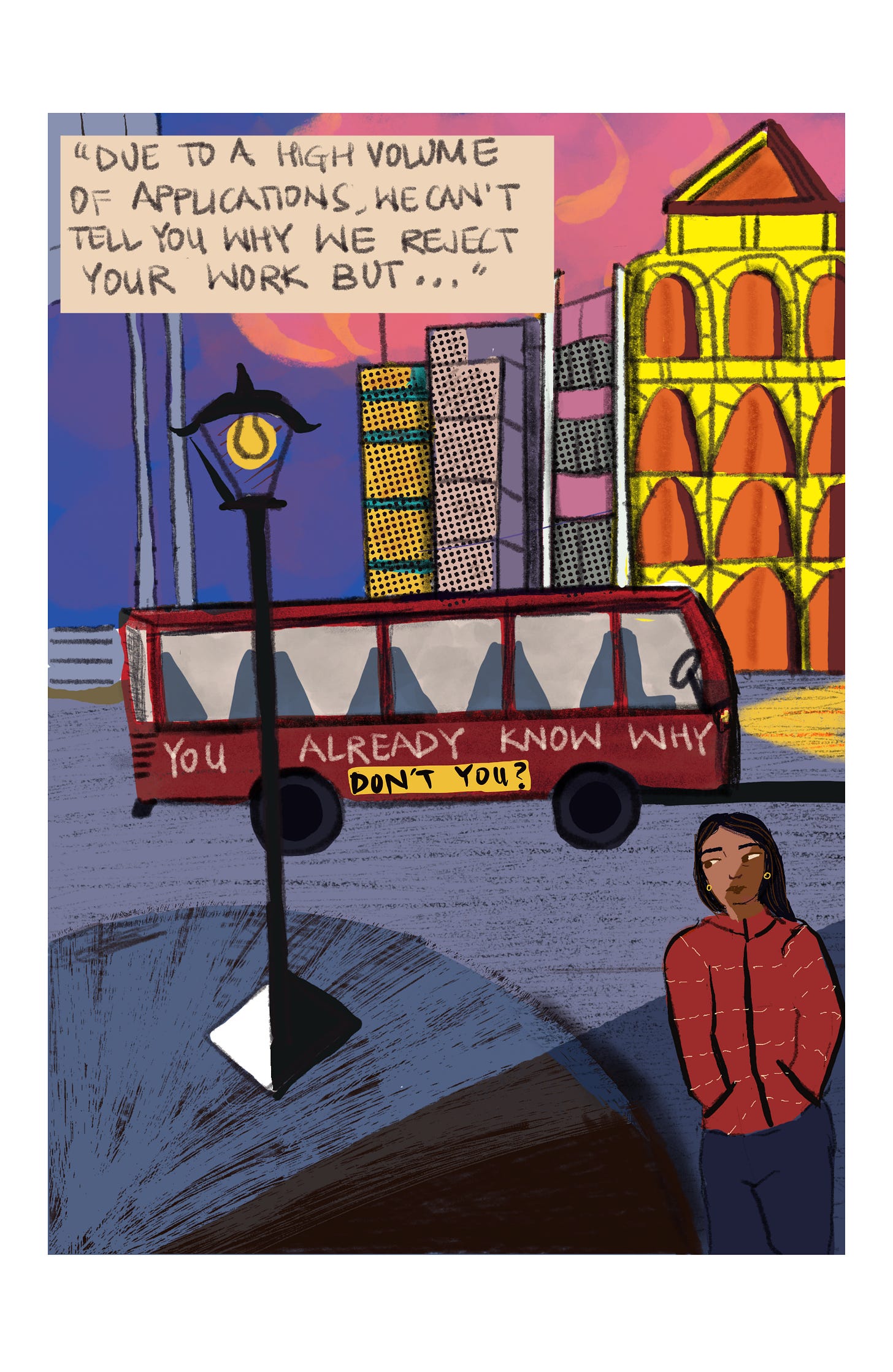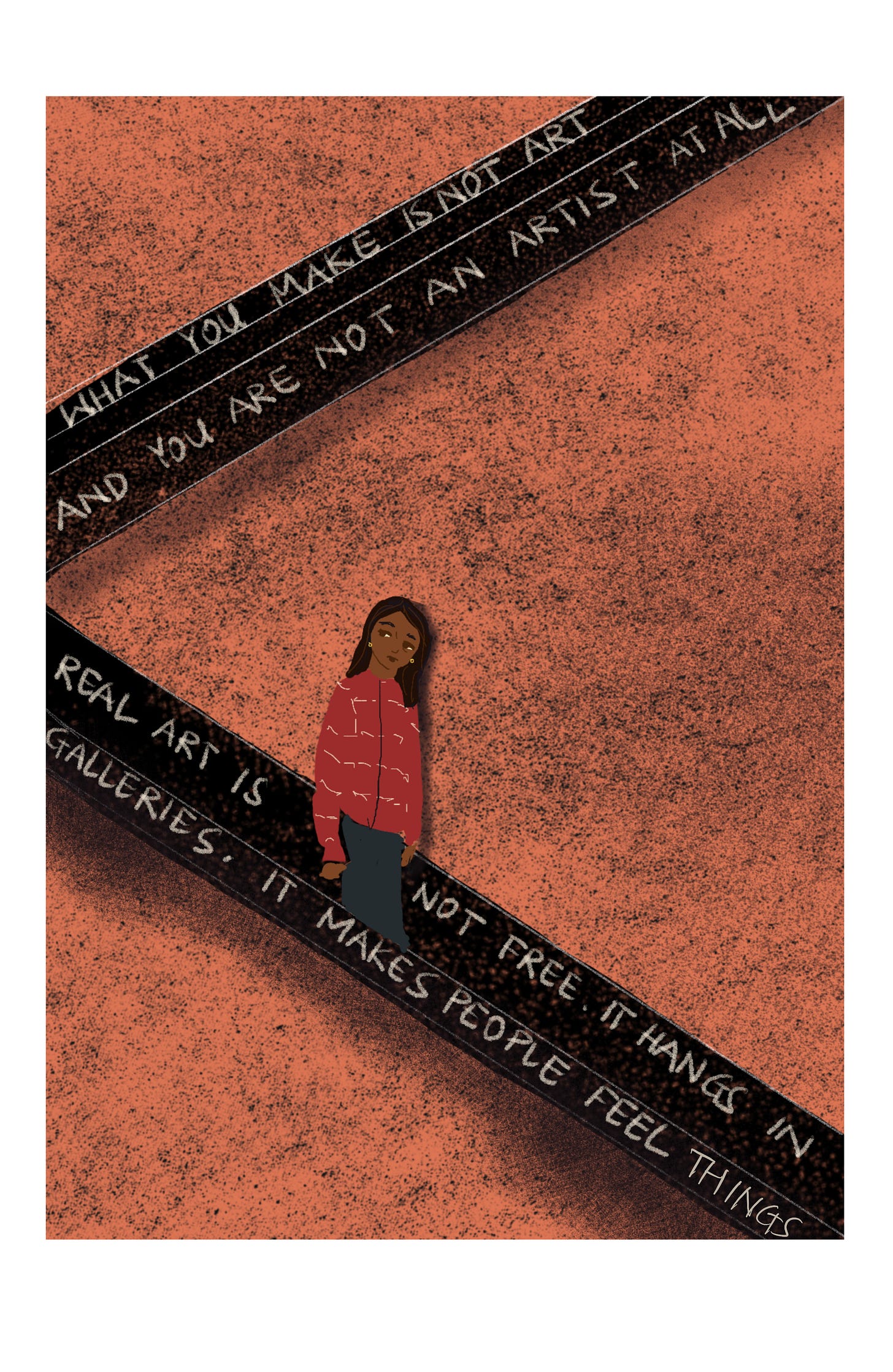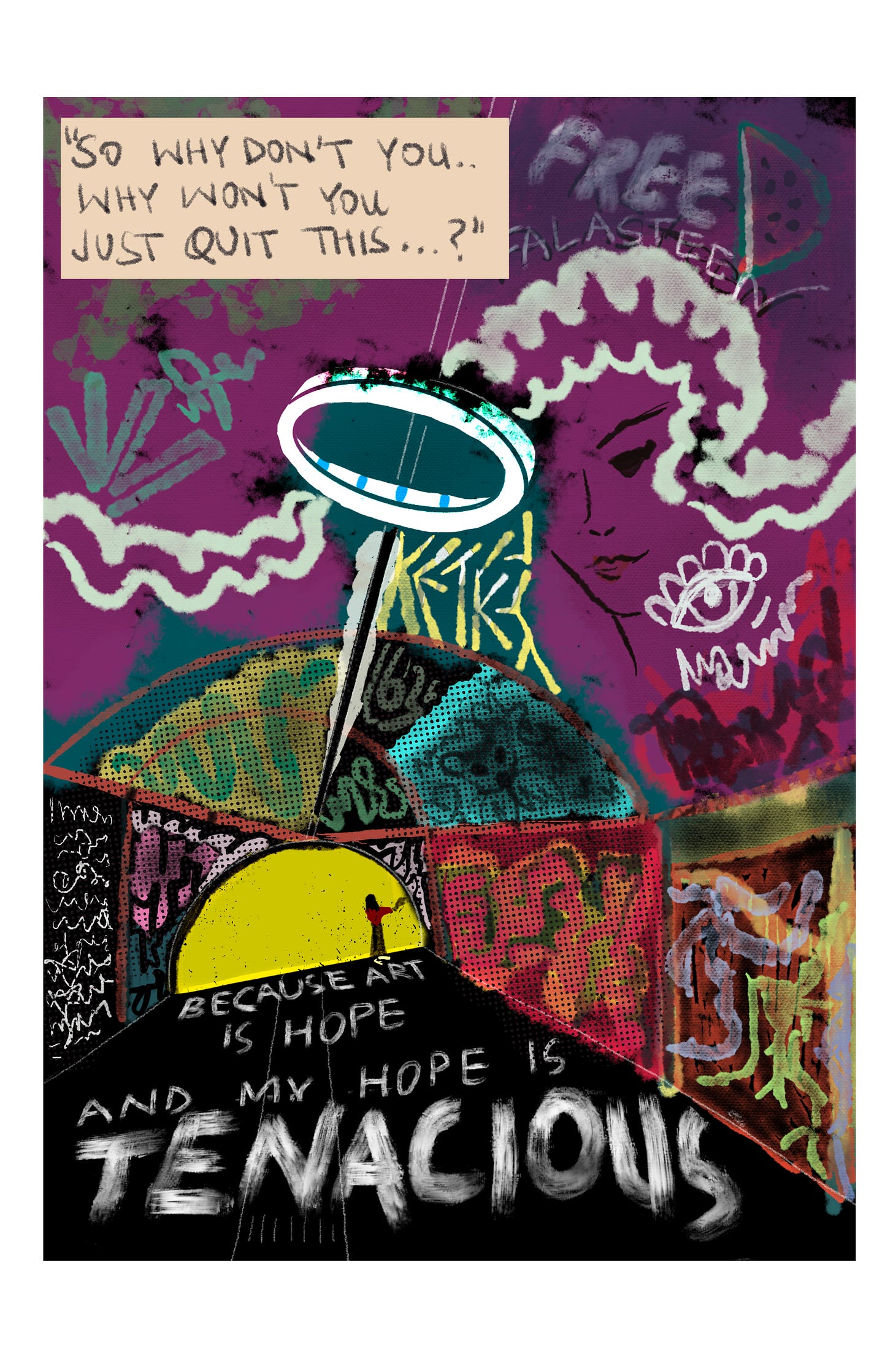In last week’s newsletter, we talked about how growth is a spiral, and failing is part of the process, but it takes a beat (or an entire bank holiday weekend of existential angst) to find one’s equilibrium again after being rejected. As you might have guessed, I was rejected for a few things that I applied for this week.
Come on, I told myself. You’ve been here before. You know how to get through this. But it is precisely the having been there before that makes rejection hurt like it does.
All it takes is an email from a remote stranger in an office, an algorithm looking for technical skills, a potential employer blinded by bias who says I don’t fit their idea of a perfect candidate for a role. Suddenly, I am back to the site of every playground rejection, every team I wasn’t picked for, every love who spurned me, all the lives I could have lived if the gates hadn’t slammed shut in my face.
The good news — channeling all of these feelings into art has been immensely helpful. Even better, I have no advice for you on how to handle rejection, we must each find our own way and remember that how we ultimately deal with rejection (after the existential angst passes), is who we really are. It is easy to be a gracious winner.
For the time being, a koan:
Show me who it is that is being rejected
and who the person doing the rejecting might be
and who the person doing the rejecting might be
If I do not draw a connecting line between my past rejected selves and the one right here, right now, would rejection still feel as pointed and personal?
If I do not cede complete and total authority to this entity as the gatekeeper of my dreams, what might feel different about this interaction?
In the realm of absolute probability, if I am choosing to believe one story i.e.
a) the person rejecting me thinks I am an abject failure
I must also seriously and equally consider the possibility of other stories like:
b) they are protecting me from making a colossal mistake
c) they are completely indifferent to me, to their workplace, to the role they rejected me for and have a whole lot of other things going on in their life and they must also remember to pick up groceries after sending out this last email and god, what a long day it’s been for them.
d) they are an alien sent to Earth to prevent its total destruction and rejecting me for this role is part of the grand plan/on the chaos timeline.
If all else fails, there is always the comforting fantasy that my rejection letters will one day hang in a hall of fame with these legends and the relief that rejection emails are no longer like this:
Dear Loser,
Thank you for sending your demo materials to Sub Pop for consideration.
Presently, your demo package is one of a massive quantity of commendable material we receive every day at Sub Pop World Headquarters, and is (due to time and volume restrictions) on its way through the great lower intestine that is the talent-acquisition process*.
We appreciate your interest in Sub Pop and wish you the best in your pursuit.
Kind Regards.
Finally, what always works for me is a reminder that rejection, like all the good-bad-terrible-wonderful things I feel in a day, is part of The Human Experience, and I would rather be alive to experience all of it than not.
On that note, a timely and morbid poem about the ultimate rejection, ie. death by Kipling:
Rejection
‘We will lay this thing here’
Thus spake the voice of the sea,
Murmuring wearily –
In the rock’s ear –
Then the green laver rose,
Shook out her folds and cried,
Before the rising tide
‘Let me repose –
Stir not my rest O sea,
With dead things in these silent deeps,
Surely wave tossed he sleeps
As heavily’ –
The weedhung chambers then
Made answer – ‘O thou sea,
The beasts that feed in me
What need they men’ –
Rock limpets cowering,
Murmured gloom-shaded – ‘There is meat
Enough for all to eat
Bear hence this thing –
In thy strong arms O sea,
Out, even to the quicksands’ brink.
It shall be that he sink –
There, utterly.’
‘We will lay this thing here’
Thus spake the voice of the sea,
Ever persistently
In the rock’s ear.
The Guardian published this poem recently as part of their Poem of the Week series, in which the British poet Carol Rumens shares and breaks open a poem to discuss how it works. I love the series and you can read her analysis of Rejection (the poem) here.
The world is burning and I hope you will not give up on hope.









I felt this! thank you <3
❤️